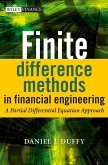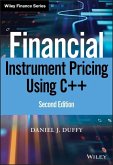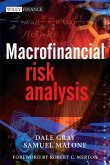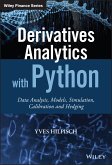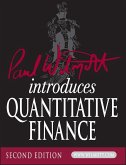FINANCIAL ENGINEERING Financial engineering is poised for a great shift in the years ahead. Everyone from investors and borrowers to regulators and legislators will need to determine what works, what doesn't, and where to go from here. Financial Engineering--part of the Robert W. Kolb Series in Finance--has been designed to help you do just this. Comprised of contributed chapters by distinguished experts from industry and academia, this reliable resource will help you focus on established activities in the field, developing trends and changes, as well as areas of opportunity. Divided into five comprehensive parts, Financial Engineering begins with an informative overview of the discipline, chronicling its complete history and profiling potential career paths. From here, Part II quickly moves on to discuss the evolution of financial engineering in major markets--fixed income, foreign exchange, equities, commodities and credit--and offers important commentary on what has worked and what will change. Part III then examines a number of recent innovative applications of financial engineering that have made news over the past decade--such as the advent of securitized and structured products and highly quantitative trading strategies for both equities and fixed income. Thoughts on how risk management might be retooled to reflect what has been learned as a result of the recent financial crisis are also included. Part IV of the book is devoted entirely to case studies that present valuable lessons for active practitioners and academics. Several of the cases explore the risk that has instigated losses across multiple markets, including the global credit crisis. You'll gain in-depth insights from cases such as Countrywide, Société Générale, Barings, Long-Term Capital Management, the Florida Local Government Investment Pool, AIG, Merrill Lynch, and many more. The demand for specific and enterprise risk managers who can think outside the box will be substantial during this decade. Much of Part V presents new ways to be successful in an era that demands innovation on both sides of the balance sheet. Chapters that touch upon this essential topic include Musings About Hedging; Operational Risk; and The No-Arbitrage Condition in Financial Engineering: Its Use and Mis-Use. This book is complemented by a companion website that includes details from the editors' survey of financial engineering programs around the globe, along with a glossary of key terms from the book. This practical guide puts financial engineering in perspective, and will give you a better idea of how it can be effectively utilized in real- world situations.
Dieser Download kann aus rechtlichen Gründen nur mit Rechnungsadresse in A, B, BG, CY, CZ, D, DK, EW, E, FIN, F, GR, HR, H, IRL, I, LT, L, LR, M, NL, PL, P, R, S, SLO, SK ausgeliefert werden.




